
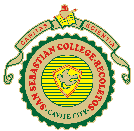
NEWS
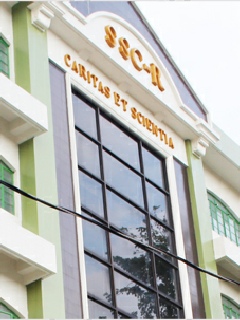
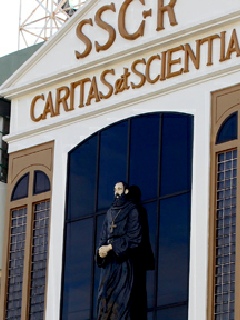
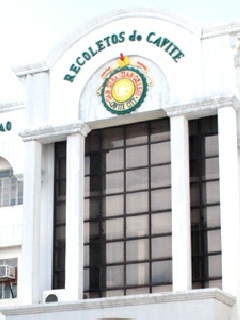
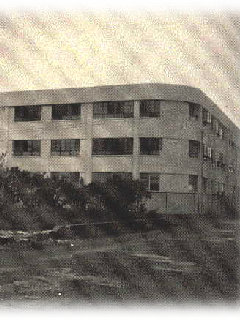
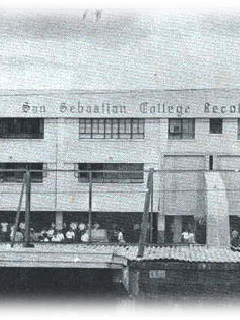
SSC-
Administrators and staff converged at Casiciaco Recoletos Seminary, Baguio City,
on July 8-
Institutional Planning Day 1
SLU, UC host admin, staff benchmarking
To kick off day one, the SSC-
SLU President Rev. Fr. Gilbert B. Sales, CICM briefly met with the SSC-
Ms. Mary Grace Carrido Baywong, PhD, Director of the SLU Office of External Relations, Media & Communications, and Alumni Affairs screened two university AVPs. After which, she gave a brief orientation and took questions.
Dr. Baywong then introduced the SSC-
With regards to marketing and promotions, Ms. Baywong shared her office’s functions which include preparing presentations, and designing the calendar, brochure, digital content, and orientation materials.
She encouraged SSC-
Dr. Baywong also explained how SLU provides students opportunities for internships
and immersions through international exchange programs like the Southeast Asian Technical
and Vocational Education and Training (SEA-
In the afternoon, the SSC-
Dr. Ramir S. Austria, Dean of the College of Teacher Education, served as master of ceremonies.
A presentation on UC’s community and extension program followed. Dr. Aguinalde explained that Project H.E.L.E.N. stood for the program’s thrusts of health, education, livelihood, environment, and nurturance. This was followed by presentations by the University of the Cordillera’s librarian and the Office of Student Services.
Afterwards, Dr. Austria highlighted the institution’s status as one of the top school’s offering Criminology and UC’s consistently high performance among HEIs in the Northern Philippines.
Engr. Nathaniel Vincent A. Lubrica, Director of the Research and Innovation Office, emphasized that knowing how to write a research proposal and promoting a sustainable reseearch culture are important to the success of a university. He said that “collaboration is the way to grow” and that learning takes place in linkages. Particularly, he cited the importance of linking with advocacy organizations that have the power to change policies.
In relation to the university’s research component, Dean Jeffery Sacay Ingosan of
the College of Information Technology and Computer Science, said that the Univeristy
of the Cordilleras’ Technology Business Incubation (TBI) Center was established to
help students and faculty conduct research while the Knowledge Technology Transfer
Office assists in the commercialization of such research and intellectual property
protection. Additionally, Mr. Ingosan shared that all programs in the university
include a three-
An open forum followed.
Dr. Rhodora A. Ngolob, Vice President for Academic Affairs, gave the closing remarks. She hoped that the inputs from the benchmarking activity would help in the school’s strategic planning in the days ahead.
A campus tour facilitated by guidance counselors from various departments of the
University of the Cordilleras followed. They were assigned by Ms. Gladys Rudio-
Towards the end of the benchmarking activity, Mr. Rene Joshua Verdote of the Corporate Commuications Office explained some marketing strategies used by the university. He highlighted the significance of generating effective content that builds trust between consumer and brand, content that is not robotic or generic, but personalized.
Institutional Planning Day 2
Divisional plans reviewed; annual goals set
Day two of the Annual Performance Review and Evaluation (APRE) and Operational Planning (OP) began with a Mass in the Casiciaco Recoletos Seminary chapel officiated by Rev. Fr. Rommel L. Rubia, OAR. Vice President for Administration.
In his sharing, Fr. Rubia talked about Jesus’ ministry of expelling demons. He said that as individuals and as an institution, we are wounded and “we have to ask the Lord to make that (evil) spirit go away” so that “it will be the Holy Spirit that reigns in our lives.”
After the Mass, Ms. Nimfa P. Taupo, Director for Institutional Effectiveness and Quality Assurance, served as Master of Ceremonies. She facilitated a review of different Operational Plans.
She first introduced the operational review done by the Student Development and Placement Center. Mr. Henry C. Hilario, Acting Director of the SDPC, responded to questions about his plan.
The body then focused on the St. Thomas of Villanova Learning Resource Center’s Operational Plan. Mr. Felixander A. Bagayao, Acting Director, recommended the formation of a library committee.
Next was the review of the operational plan of the External Affairs and Communication Office submitted by Mr. Rheymard G. Doneza, who is now the Director of Information and Communications Technology.
Ms. Taupo then presented the Operational Review Plan of the IEQA. Fr. Bumangabang
asked about progress for the upcoming PAASCU accreditation, in particular the accomplishment
of the self-
Human Resource Management and Development came next. As with the other presenters, Mrs. Maria Rowena F. Alvarez, Acting Director of the HRMD, talked about unplanned activities of the division in addition to other matters.
The review of the College of Arts and Science’s (CAS) plan came next. Dean Jennifer B. Escobar said “we should refine our research capabilities” by utilizing the library more.
Fr. Bumangabang pointed out that the title of activities should be well thought-
Dean Tommy A. Ditucalan, from the College of Engineering and Computer Studies, said that there was a need to identify other research groups to present papers in a colloquium.
Mrs.Melody M. Labog, Director of the Institute of Nursing, then reviewed their division’s
operational plan. This was followed by the operations review of the Dental-
For the Graduate School of Business, Dean Emma D. Chico also presented her division’s operational plan.
Fr. Pecson suggested revising the schedule of graduate school classes to attract more industry practitioners to teach for the institution.
Ms. Taupo suggested the use of online forms to expedite conducting surveys for activities.
Ms. Taupo then summarized the completion of activities of all divisions as follows: Planned 31%, Rescheduled 23%, Not executed 13%, and Unplanned 33%.
Afterwards, she gave an orientation for the planning session, which is based on 14
strategic directions. She also showed the templates that will be used in monitoring
plans. She said there would no longer be any mid-
Ms. Taupo also showed the new organizational structure of SSC-
In the next part of the program, Rev. Fr. Rafael B. Pecson, OAR conducted the leveling-
Moreover, he spoke about the Fourth Industrial revolution, wherein the school should strive to be a “multiversity.”
Father President added that “We can still do programs even with less expenditures, and that is innovation.” He also detailed work skills that respond to the needs of the future workforce as well as the top skills needed in 2030.
Fr. Pecson then gave a framework for strategic planning. “Do not focus so much on financial capital,” he advised. The framework he shared included reputational capital, physical capital, and human capital.
The afternoon session started with the presentation of the school’s marketing plan by Mr. Jan Carlo A. Basuil, Acting Director for Public Affairs and International Relations (PAIR). He included an analysis of the institution’s strengths, weaknesses, opportunities, and threats.
Fr. Pecson said that the institution should conduct marketing research with parents and students as respondents. Other participants opined that the office should produce a client profile. Mrs. Samoy suggested designing a questionnaire to be answered via online forms.
Mrs. Whelma Mateo, K-
Mrs. Escobar and Mr. Doneza both encouraged the body to share official posts of the school on Facebook.
The School President also announced that the phases of the marketing plan could include research, then scholarships and aids, and then strategies.
The group then discussed proposals for academic and non-
Fr. Pecson explained that the objective of offering discounts should be to reach out to poor but deserving students, and that recipients should maintain a certain grade so as not to affect the goal of excellence of the school.
In the evening, presentation of operational plans for school year 2019-
Fr. Bumangabang said that IQEA should help stakeholders “have a common understanding of quality.”
Fr. Pecson stressed that members of the institution should have “a common understanding of what we mean by standards.”
Mrs. Maria Soledad T. Tubay, Director of Institutional Advancement, Parent and Alumni Relations, then shared her annual Operational Plan. Her first objective is to acquaint the parents with Augustinian Recollect history, institutional goals and values, and Sebastinian identity formation.
Mrs. Tubay also wants to invite alumni or parents who can provide seminar-
Moreover, Mrs. Tubay said she will ask the help of the ICT Office to develop a database of alumni from graduate school, college, senior high school and elementary from the past five years.
After a short break for dinner, presentations continued with Mr. Basuil discussing the operational plan of the Public Affairs and International Relations Office. He said that his office would coordinate with the Institutional Research and Publication Office (IRPO) in the conduct of marketing research, which would serve as the basis for a marketing or PR plan.
Mrs. Maria Rowena F. Alvarez then presented the annual operational plan for Human Resource Management and Development. She mentioned that they will install downloadable HRMD forms in the school’s website.
Mr. Ditucalan suggested inclusion in the HR program of an awards system for faculty and employees who are never late or absent. Other suggestions for the program were mental wellness and financial literacy seminars, and monthly birthday celebrations sponsored by the HRMD Office.
Rev. Fr. Antonio C. Zabala, Jr., OAR then presented the plan for safety and security, which includes disaster preparedness drills, and evaluation of the security agency and individual security personnel. He added that incident reports should be written for requests to his office to investigate security concerns.
Mr. Edwin H. Expectacion, K-
Fr. Pecson recommended that security protocols be written and provided to parents.
The day ended with a closing prayer led by Ms. Nimfa P. Taupo.
Institutional Planning Day 3
Participants called to be ‘beacons for values’
“How committed am I to stand as a beacon for the values of our institution?” This was the question posed by Rev. Fr. Joseph Dexter D. Palagtiosa, OAR, Vice President for Formation, Mission and Identity in his homily.
During his sharing, Fr. Palagtiosa said that “people and nations in particular are
becoming self-
Fr. Palagtiosa added that “Discipleship is never an individualistic exercise... It is this sense of community with others that we need.” He also said that “A lot of people sugarcoat falsehood so it appears to be true. Others distort the truth. He (Jesus) puts a demarcation line between truth and falseshood. The difference is the fruit.”
The celebration of the Mass was followed by the resumption of operational planning activities.
The first presentation of the day was from Mr. Rheymard G. Doneza, Director of Information and Communications Technology. His office plans to update the computer wallpapers to display the Augustinian and Sebastinian values, and to document previously developed software. He also intends to migrate the Academic Information Management and Enrollment System (AIMES) to a new environment and to upgrade the computer memory of the two laboratories.
Another objective he wants to achieve is the speeding up of log in and logout to record attendance by means of RFID.
Ms. Nimfa P. Taupo, Director for Institutional Effectiveness and Quality Assurance (IEQA), asked if it was possible to have a central repository for all memoranda.
School President Rev. Fr. Rafael B. Pecson, OAR said that when ICT introduces a program or software, “it should be a product of consultation.”
Mr. Tommy A. Ditucalan, Dean of the College of Engineering and Computer Studies, asked about the possibility of encoding grades online.
Fr. President reminded that all requests to the ICT to develop programs should have the approval of the School Board.
Rev. Fr. Rommel L. Rubia, OAR, Vice President for Administration, also shared his plans by describing directions for his department. These include having empowered and holistically developed employees, and an institution that is adaptive to technological changes.
From the Academics, Research and Innovation Division, the first speaker was Dean Emma D. Chico of the Graduate School of Business. Her plan includes a seminar for students and a symposium for faculty. Moreover, she wants to produce a journal from the research of MBA students.
The next speaker, Dean Rosalita P. Samoy of the College of Business and Accountancy,
said that lectures and discussion-
After a brief break for taking photos, the planning session continued with Mrs. Jennifer B. Escobar, Dean of the College of Arts and Sciences, sharing her plans with the body. These include staff development and enhancement, and laboratory tools and equipment upgrade.
The School President announced that there would be a Student Media Office under the Public Affairs and International Relations Office comprised of student media groups in both campuses who will document institutional activities.
Fr. Zabala suggested making instructional media featuring core values in the form of short films.
Mr. Jan Carlo A. Basuil, Program Head of AB Communication, said that there were plans for an institutional radio station which will air live from the Mass Communication laboratory to the canteen during school hours.
Dean Tommy A. Ditucalan reported next for the College of Engineering and Computer Studies. He said that students would attend the Revolutionary Robotics Competition and Ingenious Ideas as well as participate in Cavite’s Industrial Engineering Students Congregation.
Mr. Ditucalan showed examples of student testimonials on Facebook. He said that social media was a good tool for promoting the school.
Mr. Doneza suggested that Dean Ditucalan coordinate with the Public Affairs and International Relations Office so that such testimonials can be reposted on the school’s official communication channels.
Mr. Ditucalan also mentioned his division’s plan for an automatic plant watering system for a vertical garden.
For the afternoon session, Mrs. Melody M. Labog opened the program with her operational plan presentation for the Institute of Nursing. She said they would attend Philippine Nurses Association seminars and the Nursing Forum of the Conference of Private Hospital Organizations. Moreover, she wants to establish a Sebastinian Health Station and conduct activities in the school’s adopted community.
Next to present was Mrs. Juvy B. Dela Rosa, Senior High School Principal. She highlighted
that she intends to apply for a PAASCU Consultancy Visit. She will also invite industry
practitioners for a research colloquium, preferably SSC-
She announced that there will be a student development program to be offered in the afternoon after classes. There will be sports enrichment activities. Moreover, Spanish language, consumer math, and drafting classes will also be provided.
The next speaker Mr. Edwin H. Expectacion, K-
Moreover, Mr. Expectacion stated that the Boy Scout and Girl Scout program would be relaunched.
Mr. Felixander A. Bagayao, Acting Director of the St. Thomas of Villanova Learning Resource Center, was the next presenter. He said that the library would be conducting a review of prescribed standards and reviving the library advisory council.
He also announced that the Center plans to acquire security gates (RFID) to prevent theft of library collections. Moreover, he suggested the isolation of the learning commons through the construction of glass walls.
Mr. Bagayao said that they will continue the Sanay Aral and Balik Aral outreach programs.
The body then talked about ways to develop a reading culture in the school and increase the utilization of library resources by students and faculty.
For the Recoletos Industrial and Technological Training Center (RITTC), its Director Ms. Opalyn G. Cardaño first presented a summary of her department’s Operational Review.
As regards the upcoming academic year, she plans to organize “Skills Expo 2019” and to reactivate Caregiving NCII.
Ms. Taupo presented the Registrar’s Operational Plan on behalf of Ms. Melody D. Salibio, the School Registar.
Rev. Fr. James T. Bumangabang, OAR presented the Academic, Research, and Innovation
Stragetic Plan for SSC-
He clarified the strategic direction which include taking the first step toward becoming a “glocal” provider of Catholic Education, launching the internationalization strategy of the different programs, capacity leveraging for innovative or creative teaching and learning, and conducting research. “Research is number one,” Fr. Bumangabang said.
After the dinner break, Mrs. Ana D. Manzano, Acting Director of the Center for the Recoletos Community Outreach Program (CReCOP), gave an overview of the proposed program of activities for “TAGASTE 2019”.
One highlight of the welcome week would be the “Bautismo Sebastino” to signify the new identity of freshmen and transferees as members of the Sebastinian family.
Afterwards, Fr. Zabala presented the plans of the Campus Ministry Office. Activities include recollections and retreats, feast day celebrations of Augustinian saints, and Augustinian Recollect Spiritual Exercises.
Fr. Pecson suggested using BasteTV and the planned SSC-
The next speaker, Mrs. Melody Labog, gave the Health Services Operational Plan. She
said that they would conduct a medical-
Fr. Pecson led the closing prayer.
Institutional Planning Day 4
Towards internationalization in 2030
Rev. Fr. Antonio C. Zabala, Jr, OAR, Campus Minister (Main Campus), officiated the morning Mass in the Casiciaco Recoletos Seminary chapel on July 11.
In his sharing, Fr. Zabala expounded on Jesus’ human resource management style. “He
was very hands-
Fr. Zabala explained that Christ handpicked twelve apostles with different personalities and different occupations, and that he had his own standard office procedures.
“We’re developing standard procedures,” Fr. Zabala said. “No different from what the apostles were doing. What we are doing is actually the first step.”
After the Mass, Mrs. Ana D. Manzano shared the Operational Plan of the Cañacao Campus Ministry Office. She mentioned Rosary Baranggayan, catechism, and recollections in Barangay 61A . There would also be a summer catechetical program.
She then proceeded to outline the CReCOP Office and NSTP operational plans. Her division will orient Sebastinian Vision grantees and CReCOP volunteers, and coordinate with volunteer NSTP instructors.
Fr. Bumangabang suggested the inclusion of parents and alumni in the outreach program. Fr. Zabala added that the outreach program should be integrated, collaborative, and communitarian with different departments working together.
Rev. Fr. Joseph Dexter D. Palagtiosa, OAR, Vice President for Formation, Mission
and Identity and Coordinator for Sports Development and Athletics, discussed the
Athletics Operational Plan. His office intends to provide a well-
For the Student Development and Placement Center, Acting Director Mr. Henry C. Hilario shared his division’s plans for the year. These include adminstration, scoring, and interpretation of pyschological tests; holding Job Fair 101; admission and interview of new and transferee applicant students; attendance and participation in seminars organized by the government and private institutions; and to produce research using the data available in the center.
The next speaker, Ms. Melissa B. Puti, gave an overview of the operational plan for the Student Affairs Office. The first activity for the school year she presented is the review and revision of the student handbooks. She also said they will coordinate with other concerned offices in seeking possible linkages.
Mr. Nikki Sitjar, Institutional Coordinator for Students Activities and Recollect
Student Leadership, outlined the Formation, Mission, and Indentity Office’s plans
as regards institutional activities for students. He announced that SSC-
For Social Involvement and Advocacy, Mr. Mike Jansen B. Pacifico, who is also the Psychology Department Head, shared the plans for the fledgling SIA department.
He said that he will propose changing the name to Social Engagement and Advocacy. He enumerated his plans which include having an orientation, developing a manual, creating forms, assigning focal persons, holding regular meetings for quality assurance, and regular consultations with and visits to partner communities..
Fr. Bumangabang recommended focusing on one advocacy to make SSC-
Mrs. Ana D. Manzano then presented the Christian Life Formation-
Dr. Maria Josefina Soledad C. Milanes, Institutional Coordinator for Scholarships
/ READS, then presented the READS Scholars Operational Plan. She started by mentioning
that there will be a retooling for old READS Grantees as well as orientation for
all heads of the offices. She also clarified the process for issuance of gate passes
to READS grantees who are given errands off-
Rev. Fr. Joseph Dexter D. Palagtiosa, OAR summarized the direction of the Formation, Mission, and Identity Division.
Afterwards, Mr. Christopher C. Lim, School Comptroller, presented the Operational Plan of the Finance Division. He plans to increase the number of frontliners during the examination period.
Rev. Br. Raymund G. Alcedo, OAR, Vice President for Finance, presented the summary of the Finance Division Direction.
The final summary, which was from the Central Administration, was delivered by Mrs. Maria Soledad T. Tubay. The division’s goals include formation and identity, quality and excellence, engagement, and linkages and internationalization.
Miss Nimfa P. Taupo presented the institutional timeline called “Roadmap to 2030,” the breakdown of which is as follows:
2018-
2019-
2020-
2021-
2025-
2027-
Institutional Planning Day 5
Baguio City Tour
On the fifth day, participants of the Annual Performance Review and Evaluation and Operational Planning took in the sights in the City of Pines. They visited Mines View Park, the Cathedral of our Lady of Atonement, the Mountain Maid Training Center of the Good Shepherd Sisters, and the Baguio City Market.
| History |
| Data Privacy |
| Recoletos Graduate Attributes |
| Vision and Mission |
| Offices |
| School Officials |
| Hymn |
| Seal |
| Directory |
| Central Administration Division |
| Academic, Research and Innovation Division |
| Formation, Mission, and Identity Division |
| Finance Services Division |
| Main Campus |
| Cañacao Campus |
| Graduate School |
| Colleges and Institutes |
| Basic Education Department |
| College of Arts and Sciences |
| College of Business and Accountancy |
| College of Criminal Justice Education |
| College of Engineering and Computer Studies |
| Institute of Nursing |
| Senior High School |
| Kinder-Junior High School |